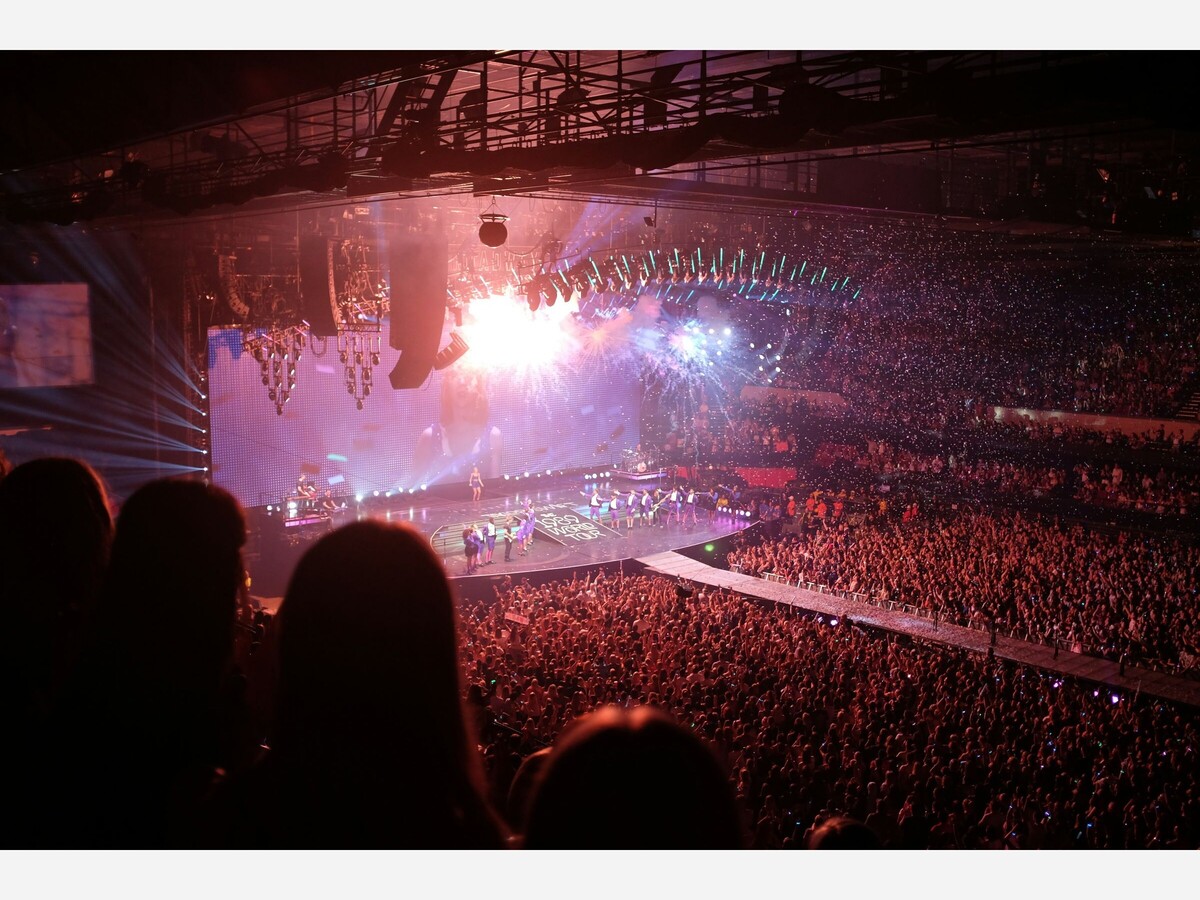Image

The Trouble With Ticketmaster
by Sophia Scribner
If you’re anything like the average high schooler, much of your day is spent listening to music. According to a 2021 CBS news poll, 62% of Americans call themselves ‘music fanatics’, averaging a whopping 32 hours per week of streaming their favorite tunes.
With the popularity and convenience of apps such as Spotify and Apple Music, hearing your favorite artists through your airpods or car speakers is as easy as pressing play. But there is a completely different (and much more arduous) process for fans who wish to attend a live performance.
Even if you have no interest in breathing the same air as your favorite singer in a stuffy, overcrowded venue, you've probably still heard of Ticketmaster, the master site behind most concert sales in the US.
The website rose to domination after merging with Live Nation, the company in control of almost every major concert venue in the country.
Nilay Patel, editor-in-chief of the news site The Verge, highlights the reason for Ticketmaster’s dominance in his podcast, The Decoder: “Every aspect of a concert is merged into one company, and that company makes money at virtually every level of the stack.” This explains why Ticketmaster made $12.3 billion in revenue in 2022 alone.
Ticketmaster’s monopoly has always been a prevalent concern. But the difficulty of obtaining concert tickets has only recently become an issue, especially for high schoolers, following the announcement of Taylor Swift’s 2023 Eras Tour.
Of the 12 high schoolers surveyed that had bought from Ticketmaster in the past year, 5 of them attended the tour. And of the 500 million tickets sold in 2023 on Ticketmaster, 2 million were sold in one day for the Eras Tour, breaking the site’s record for most single-day sales.
Caroline Debreceni, a high school senior, was waiting in a queue for seven hours to get tickets. When the sale finally opened for her, she was frustrated at the lack of seating that remained. “The only tickets we could afford were obstructed view tickets that were still over $100 each, with a $100 fee.” she says. “I’m glad I went to the concert, but I’m never using Ticketmaster again after that.”
Of course, the process of buying tickets greatly depends on the popularity of the event, as Ticketmaster sells tickets to a plethora of other experiences.
The surveyed students waited anywhere from 5-10 minutes to a whole day to buy tickets, and 75% of them were in a queue or presale before buying.
But the struggles still persist for those trying to attend concerts with lesser-known artists. Senior Fiona Corbett attempted to buy tickets to a Noah Kahan concert, waiting in a presale queue for two hours to no avail. “I was so mad that all the tickets were basically gone on the presale after I tried on presale and regular sale. Ticketmaster shouldn't be the only company selling these tickets,” she says.
Of the twelve people who bought tickets, nine said that they would still buy again, despite the frustrations. This is because they essentially have no other option if they want to see their favorite artists live.
But what can be done to open the market to other companies? Well, nothing, if you’re a high schooler. The solution lies in the hands of our congressmen.
The Senate Judiciary Committee held a hearing last January addressing concerns about “the lack of competition in the primary and secondary ticketing markets,” according to an article by CNBC.
The fact that Ticketmaster holds a monopoly on the industry isn’t illegal in itself, rather, “It’s illegal for a business to establish or maintain a monopoly through improper conduct and not allow for others to enter the market,” according to the same article.
Despite the fact that the future of the company is unclear, the hearing didn’t elicit any changes to Ticketmaster’s policies. As long as teens are still willing to pay an exorbitant amount in fees for nosebleed seats to the next pop star’s world tour, Ticketmaster will continue to dominate the market.